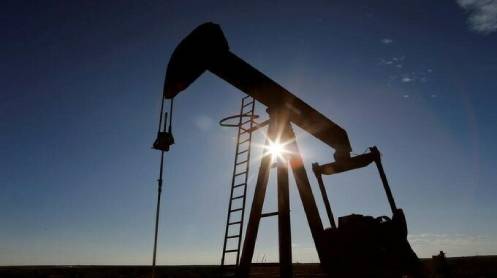KARACHI – In a potentially transformative development for Pakistan’s energy sector, significant oil and gas reserves have been discovered in the country’s territorial waters. A senior security official revealed that a three-year survey conducted in collaboration with a “friendly country” confirmed the presence of these substantial deposits. The discovery, hailed as a potential game-changer for the nation’s economy, could reduce Pakistan’s reliance on imported fuel and open up vast new opportunities in the energy sector.
Survey and Collaboration
The official, speaking on condition of anonymity, explained that the survey was carried out to identify possible hydrocarbon reserves in the region. The successful results of the geographic survey have pinpointed specific locations for oil and gas deposits. Government officials have already been informed by the relevant departments, signaling the first step toward exploration and extraction.
“This is a historic find for Pakistan and aligns with our strategy to harness the blue water economy,” said the official. He further noted that beyond oil and gas, the ocean holds other valuable minerals that could be exploited to boost the country’s economic growth.
Exploration and Economic Impact
Plans for bidding on exploration rights are currently under review. Although the discovery has generated considerable excitement, the process of drilling, extracting, and bringing the resources to the surface could take several years. The official estimated that Pakistan might have discovered one of the world’s largest untapped reserves, suggesting the country could become a key player in the global energy market.
The official underscored the importance of acting swiftly, as timely exploitation of these reserves could help turn around Pakistan’s economic fortunes, especially in the face of rising energy demands.
Expert Caution: Managing Expectations
Despite the optimistic outlook, experts are advising caution. Former Oil and Gas Regulatory Authority (OGRA) member Muhammad Arif, while expressing hope, warned that the size and viability of the reserves would only be confirmed once drilling begins. “Even though the discovery is promising, there’s never 100 percent certainty that these reserves will meet expectations,” Arif told DawnNewsTV.
He added that if the reserves primarily consist of natural gas, it could significantly reduce Pakistan’s dependence on expensive liquefied natural gas (LNG) imports. If oil is found in significant quantities, the country could reduce its reliance on imported crude.
However, Arif also stressed that exploration alone is a costly venture. “It would require an estimated $5 billion just to explore these reserves, and it could take four to five years before extraction begins,” he cautioned. The costs would further escalate with the development of infrastructure, including wells and pipelines, to bring the oil and gas to the market.
Future Potential and Global Context
If fully realized, the discovery could place Pakistan among the world’s top oil and gas-producing nations. Current estimates suggest that the deposits found in Pakistan could rival those in oil-rich nations like Saudi Arabia and Venezuela, which lead in global reserves. The newfound reserves could also help stabilize the country’s foreign exchange reserves by significantly lowering fuel import bills.
The concept of the “blue water economy” goes beyond oil and gas, with the official highlighting the potential for other deep-sea minerals and resources that can be mined to further boost Pakistan’s industrial base.
As the nation waits for the next phase of development, the discovery has raised hopes of a brighter energy future, even as experts urge patience and prudent investment in the exploration process. While the road to full-scale production may be long, this find represents a significant step towards energy self-reliance for Pakistan.







